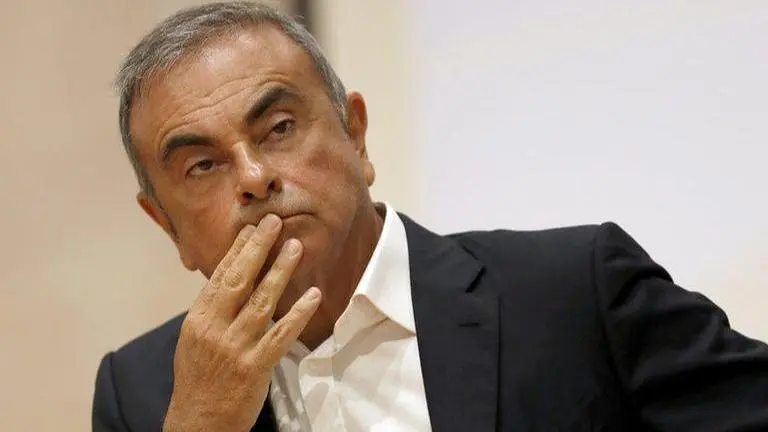Updated 24 November 2020 at 12:22 IST
Japan defends handling of Ghosn amid UN criticism
The Japanese government on Tuesday denounced a report by a panel of United Nations human rights experts that said former Renault-Nissan boss Carlos Ghosn was wrongly detained in Japan.
- World News
- 3 min read

The Japanese government on Tuesday denounced a report by a panel of United Nations human rights experts that said former Renault-Nissan boss Carlos Ghosn was wrongly detained in Japan.
The Working Group on Arbitrary Detention has also urged compensation for Ghosn from the Japanese government in their report issued Monday.
In its opinion, the working group found that Ghosn's arrest in Japan in late 2018 and early 2019 was arbitrary and called on Japan's government to "take the necessary steps to remedy the situation of Mr. Ghosn without delay."
Japanese Justice Minister Yoko Kamikawa called the report a totally unacceptable viewpoint that will change nothing in the country's legal process.
Advertisement
"Without understanding Japan's criminal justice system and relying only on Ghosn's one-sided allegations, it is extremely regrettable that a written opinion based on a clear misunderstanding of facts was published," Kamikawa said at a press conference.
"The government has just filed a formal objection and would like to continue to provide information to the extent possible and correct the factual misunderstanding," Kamikawa said.
Advertisement
While Ghosn is no longer in Japan, having fled in a dramatic operation that drew headlines worldwide, the opinion could weigh on minds in courtrooms in the country and beyond.
It could affect, for example, the possible extradition of two Americans, Michael Taylor and his son Peter, whom Japanese prosecutors say helped the executive sneak out of Japan.
Ghosn, a 66-year-old with French, Lebanese and Brazilian citizenship, led Japanese automaker Nissan for two decades, rescuing it from near-bankruptcy.
He was arrested in November 2018 on charges of breach of trust, in misusing company assets for personal gain, and violating securities laws in not fully disclosing his compensation.
He denies wrongdoing.
In December, he fled Japan to Lebanon while out on bail awaiting trial, meaning his case will not go on in Japan.
Interpol has issued a wanted notice but his extradition from Lebanon is unlikely.
The opinions of the working group are not binding on countries, but aim to hold them up to their own human rights commitments.
Among its past rulings involved the case of Wikileaks founder Julian Assange, who was likewise deemed to have had his human rights violated.
Ghosn has accused Nissan and Japanese officials of conspiring to bring him down to block a fuller integration of Nissan with its French alliance partner Renault SA of France.
His lawyers filed a petition with the working group in March last year, appealing to its role to look into cases in which governments are alleged to have wrongly detained individuals under agreed international human rights conventions.
Its members declined to speak to reporters about the opinion, the UN human rights office said.
Published By : Associated Press Television News
Published On: 24 November 2020 at 12:22 IST
